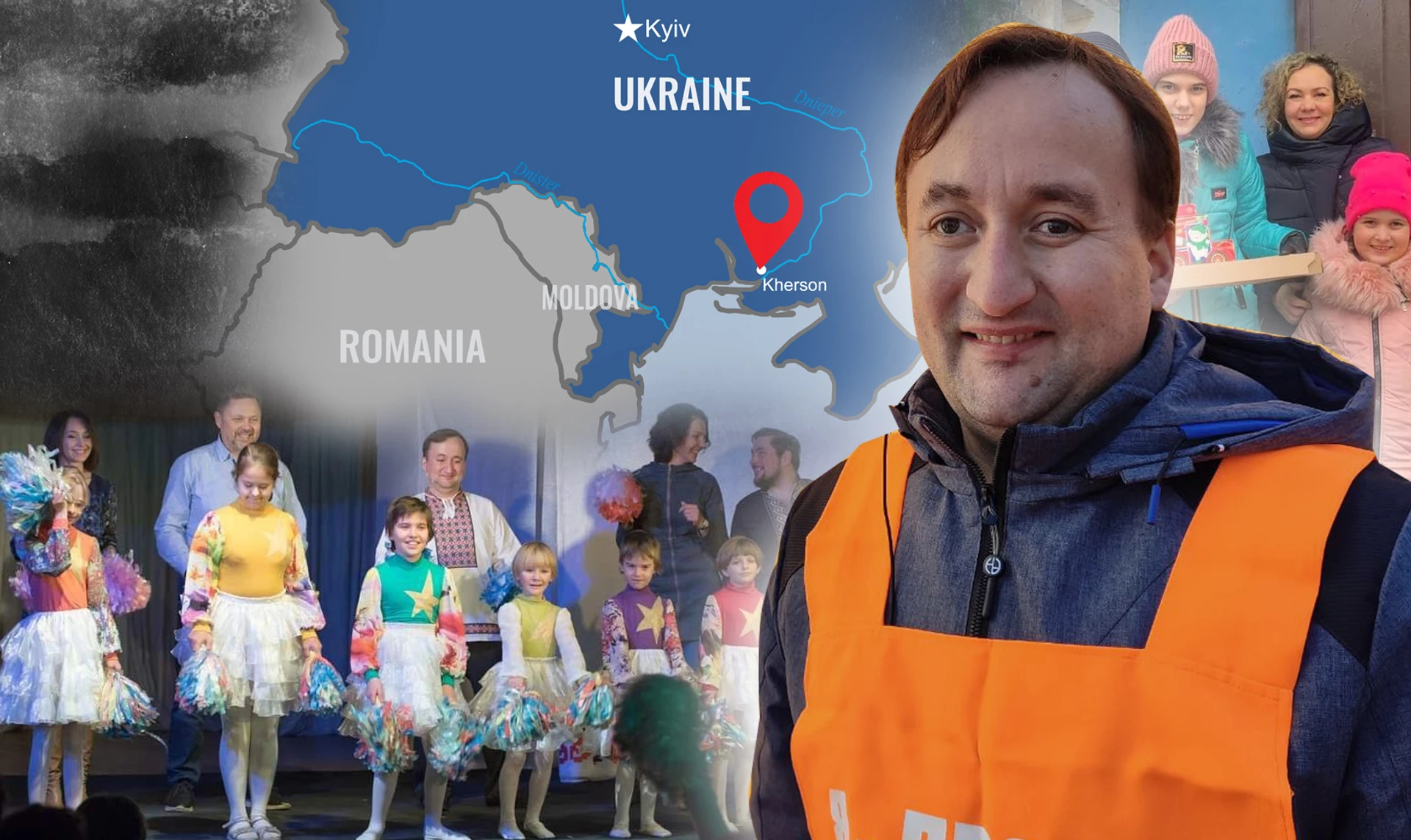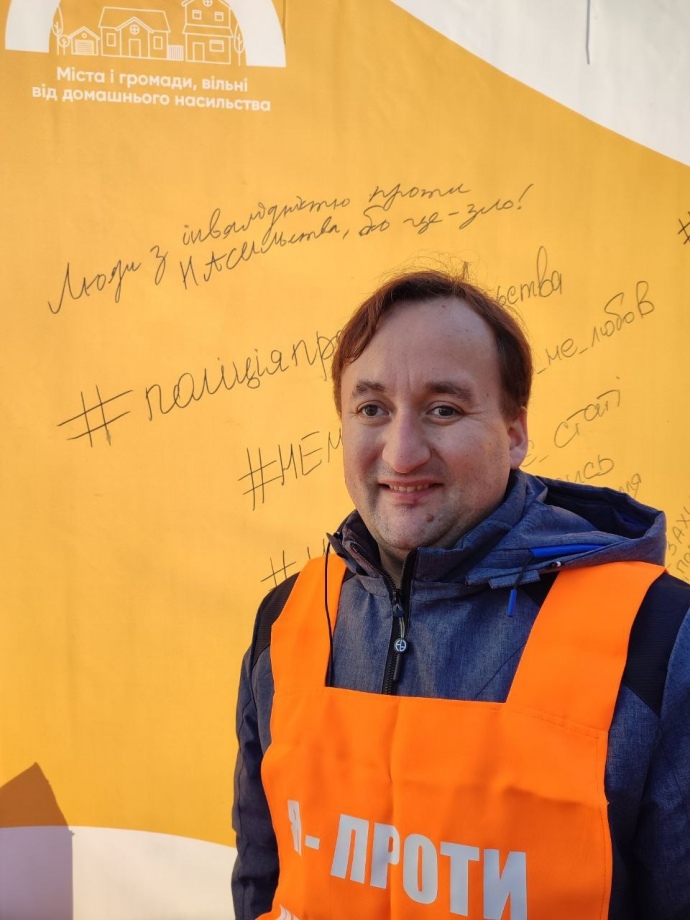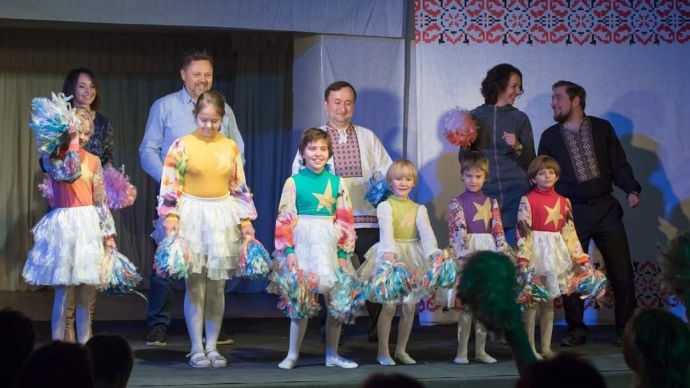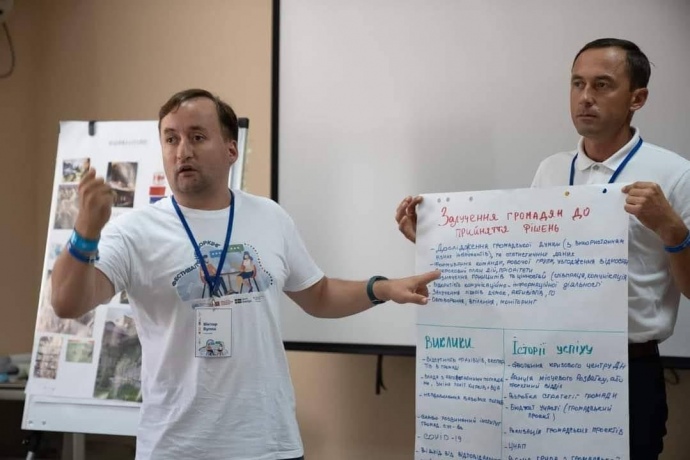"Russians knew who to target. I could not save everyone" – a disability activist who rescued locals from occupied Kherson

More than a year after Kherson occupation, Ukrainian survivors still live with scars of that experience.
"I didn’t believe that the big war started," Viktor recalls, "Not in the very beginning, no."
"I remember waking up really early and getting a call from my friend that Russia launched a full-scale invasion on Ukraine," he continues, "I thought he was joking. Then, I saw smoke around the airport, and people rushing on the streets. That’s how I knew it was true."
Viktor pauses for a minute, trying to gather his thoughts. The memories of those fateful days in the late February of 2022, when his native city of Kherson, Southern Ukraine got occupied, still trigger a lot of emotions. Most of his friends survived the invasion, but many others were kidnapped and deported to Russia. Viktor was among those rescuing his fellow citizens during the occupation. A disability rights activist and a person with disability, he helped evacuate people from then-occupied Kherson. Thanks to him and other volunteers, people with disabilities as well as women with children managed to flee to Ukraine-controlled territories. The evacuation took place under the muzzle of Russian guns. Occupants checked all the vehicles, threatened people with arms, as well as demanded bribes to let the cars pass.

"Most civilians cars were shot at during evacuations, so we got lucky to escape when it was still possible," Viktor recalls, "Many people were unable to leave later on and had to survive in Kherson all the way until Ukrainian troops liberated the city."
"I had to reject many locals who asked to be evacuated because we could not fit them all in," he sighs, "It was the hardest part. The list of those desperate to leave kept on growing, but I could not save everyone."
"If not me, then who?"
"I spent my childhood at Oleshky children’s home, not far from Kherson," Viktor says, "I lived thirteen years there as a child without parenting support."
The place is home to many orphans with disabilities and specific learning needs. It´s been under Russian occupation since 2022, and Russians kidnapped its residents when they were retreating from the region – including children with psychosocial disabilities.
This was a major blow to Viktor who used to help the many residents of the home long after graduating from it. For years, he’s been visiting the place as well as supporting people with disabilities across the region – having firsthand experienced the hardships of living in an institution, with little mentorship and empathy from the community.
"My childhood hardships inspired me to be an activist and help youth with disabilities," Viktor says, "I use prosthetics, and I know what it’s like trying to integrate into society after leaving the orphanage. I know that nobody owns us anything, but it is very hard to adjust. Children struggle immensely whenever they leave the institution It is great whenever you meet people willing to help you and let you flourish and become the person you want to be."
So Viktor decided to be that person for many young people in Kherson region. He became a social worker and an activist fighting for disability rights as well as mentoring young people in need.

"After all, if I don’t do it, who else? Why not me helping others?" Viktor asks, resolution in his voice.
"In Kherson, we had a lot of alumni of our orphanage," he continues, "We tried to organize and support one another and current students as much as we could. But the thing is, there are many problems for people with disabilities and children in institutions, and the war only intensifies them."
The fact that many children with disabilities were deported from Oleshky’s home showed that many state institutions could not guarantee residents’ safety and move them to a less dangerous area – before Russians occupied this territory.
[BANNER1]For Viktor, learning about the Russian control of the home – and the subsequent deportation of the children – was a personal loss. For years, he’s been coordinating international volunteering efforts to improve the lives of many of the residents with disabilities.
"Even prior to the full-scale war, it was difficult to be a person with a disability in our region," Viktor explains, "Some things were being done to improve accessibility, but they tended to be shallow, and inclusion remained a problem. Now things are getting worse due to the all-out war and an even greater shortage of money for any projects."
"In addition, there are still lots of stereotypes," the man continues, "We did some educational campaigns to change things, but it requires lots of time and effort to transform people’s attitudes and beliefs about disabilities. During the USSR period, the approach was "This person is sick, so we better lock them up." Nobody talked about an inclusive social model, so some of this mentality is still present in contemporary Ukraine. I hope this changes, and not without our initiatives and determination."
This activism has been the driving force behind all Viktor’s activities. Both as a social worker and the head of the organization "Valued" which advocates for disability rights, he’s been trying to pave way for more inclusivity and acceptance in his home community – and continued doing so in the hardest days when his city fell under the Russian occupation.
The long escape from occupation
"I remember the military equipment all over the place," Viktor recalls those cold days in early 2022 when Russians entered his home region, "There were lots of invaders on the streets, and little information on what was going on in the rest of Ukraine."
The man decided to stay together with his childhood friends – other disability activists – and see what they could do in the situation. As Russians were tightening their control over the city, locals went out to protest – despite guns being pointed at them and a risk that soldiers would shoot them for disobedience. Viktor went out, too.
"I joined the crowds on the main, Freedom, square, and I shouted alongside them," he recalls, "I yelled at Russians that Kherson is Ukraine, and that we don’t want them there. Many people with disabilities and local activists joined us, and the protests went on."
Kherson remained under occupation for more than half a year, and it was liberated in November of 2022. In these months, the city quickly ran out of money, food, and medicines, as Russians blocked humanitarian aid from Ukraine – while sometimes delivering supplies themselves, often looted from other occupied Ukrainian territories.
"I, a prosthetics user, had to wait in long lines in hope to buy some food," Viktor says, "Those were the early days of the occupation. I was also getting food for people who could not leave their apartments because they could not move – or because they were being targeted. Many people ended up stuck in their homes in this dangerous situation."
"There were other volunteers delivering food when they could, but it wasn’t enough," he adds, "Besides, imagine this: you’re waiting in the grocery line, and Russian soldiers are standing next to you with guns. It was very scary, and I don’t wish this to anyone."

Viktor and his activist friends managed to connect with volunteers from outside of Ukraine to raise funds for evacuations. Thanks to these efforts, they found the cars to take the most at-risk people out of Kherson – as well as bribe Russians who kept refusing any humanitarian corridors for civilians to escape.
"Volunteers quickly started working on rescuing missions. I became the person in charge of coordinating evacuations," Viktor says, "A huge amount of people wanted to flee because nobody wanted to live under the Russian occupation. However, we lacked the humanitarian corridors for that, and volunteers were risking their lives rescuing people, often driving under the bullets."
"Russians had lists who to target, and they knew the names of local activists, people from the queer community, and so on, who were in the biggest danger," the man continues, "Plus, there were people with disabilities and lots of kids. So the worst part of evacuations was actually not being able to rescue everyone. We simply didn’t have enough space, and we couldn’t guarantee we’d be able to transport everyone who wanted to leave."
On April 17, Viktor fled himself – as well as managed to help evacuate 40 other people on his last journey out of Kherson. The group had to go through 17 Russian checkpoints – and at each one, the soldiers looked through people things, demanded bribes, and stole passengers’ belongings.

"It was at night that we finally saw our Ukrainian Armed Forces," Viktor remembers, "It was after many scary hours of driving, and after months under occupation. Seeing Ukrainian troops was such a happy moment for us."
Volunteers from other parts of Ukraine greeted the evacuees – and helped them settle or continue traveling. Viktor, who as a kid learned German, chose to go to Germany – where he decided to pursue his language studies further and acts as a volunteer translator for fellow Ukrainians who fled the Russian invasion.
"I want to return home after the war, but it’s hard," Viktor says, "The war taught us not to plan anything. We used to hope that in a few months, everything will be over, and we will all return home and live by fixing our problems."
"I want to return and help restore Ukraine, but I don’t know if there will be a place for me to return," he concludes, "So many places have been completely destroyed, so many people lost their homes. I realize that the government won’t be able to rebuild a home for everyone, and some people will remain abroad – those who manage to adjust. This is a challenge for us all."
Author: Anna Romandash
